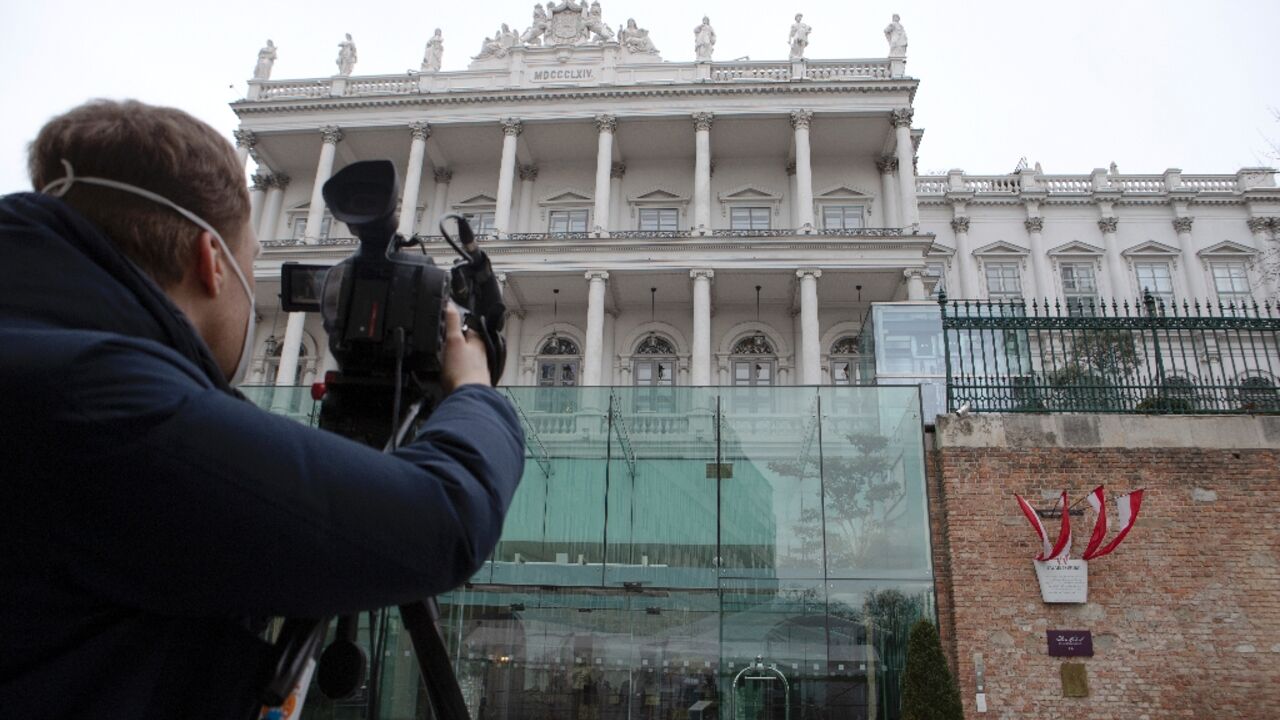Vienna 'Asparagus Palace' hides Iran nuclear tensions

The calm outside Vienna's luxury Palais Coburg hotel on Thursday belied the fraught diplomatic talks on Iran's nuclear programme being thrashed out inside.
Aside from a few television cameras keeping watch for envoys arriving in black saloons, there are no indications that the negotiations to revive the 2015 deal could achieve a breakthrough or fail in the next few days.
The building, built by Prince Ferdinand of Saxe-Coburg and Gotha in 1845 on an old city wall bastion, was soon dubbed the "Asparagus Palace" by locals in the Austrian capital on account of its slender columns.
Behind the ornate facade, meetings have often stretched into the evening, including at weekends.
The Iranian delegation's refusal to sit around the same table as the United States means the EU's Enrique Mora, who is co-ordinating the talks, constantly shuttles between the two.
Also present at the Coburg -- where the deal was originally struck -- are the other parties to the accord: Britain, China, France, Germany and Russia.
The 2015 deal eased some sanctions on Iran in return for strict curbs on Tehran's nuclear programme.
However, it began falling apart after former US president Donald Trump withdrew in 2018 and re-imposed sanctions.
His successor Joe Biden took office in 2021 saying he wanted to revive the deal and negotiations started last April.
- 'You only live once' -
For Vienna, whose all-important tourism and conference sectors have been decimated by the pandemic, the talks have been a welcome lifeline as the city reprises its historic role as a venue for international negotiations.
The American delegation is briefed in the five-star Imperial hotel -- home to heads of state and celebrities over the decades -- or a few hundred metres away from the Coburg, in the Marriott hotel.
The Iranian delegation, staying on the other side of Vienna's Stadtpark, comprises no fewer than 40 people, compared to less than 10 for France.
The diplomats have been kept at arm's length from the press.
The roughly 200 accredited reporters from around 30 countries gather in a large white tent on the square outside the hotel, offering some shelter from the Viennese winter.
Noisy protests by opponents of the Iranian regime have enlivened the atmosphere. A few steps away from the press tent, they have displayed a series of images of Western prisoners in Iran.
The negotiations have even attracted activists who have gone on hunger strike to demand the detainees' release -- a reminder of unresolved tensions even if the nuclear talks succeed.
Inside, the negotiators only risk rubbing shoulders with those who have splashed out on a suite.
The tag line above the hotel's price list -- almost all in four figures -- reads: "You only live once".
- 'Sensitive inflection point' -
The rare public comments from negotiators tend to be from the bow-tied Chinese ambassador Wang Qun, who sometimes stops to address the press, or Russia's Mikhail Ulyanov, who often shares his -- mostly optimistic -- views on Twitter.
But discretion is the watchword for such sensitive talks.
The negotiators "are at a sensitive inflection point and that is why they are keeping their cards close to their chest," according to Ali Vaez, Iran specialist at the International Crisis Group.
"The main discussions are still happening in Vienna, not at the capitals," he added.





